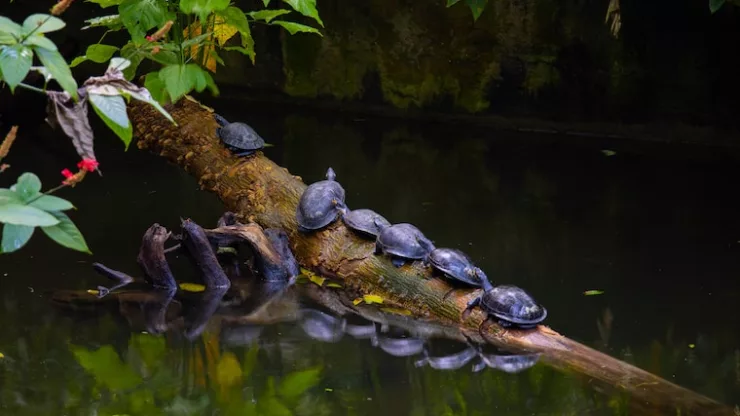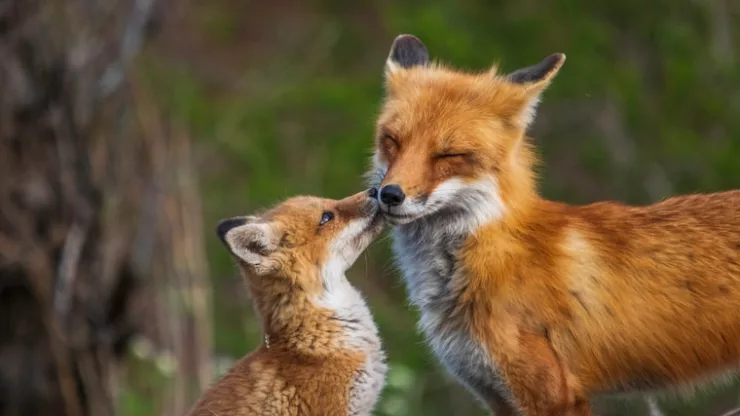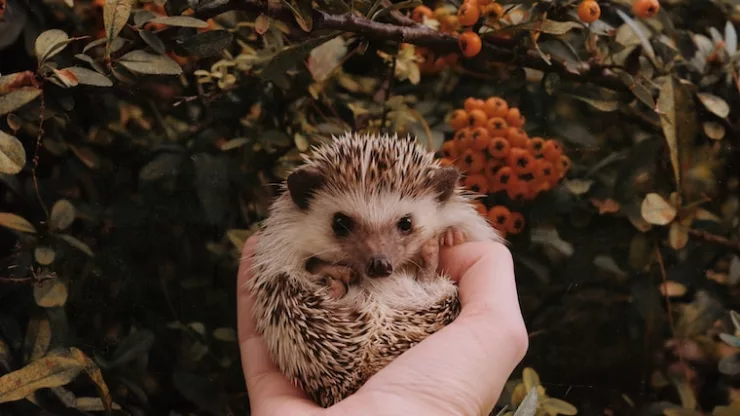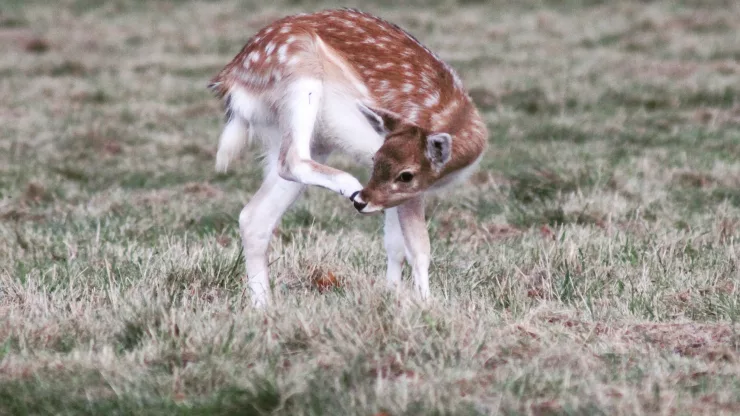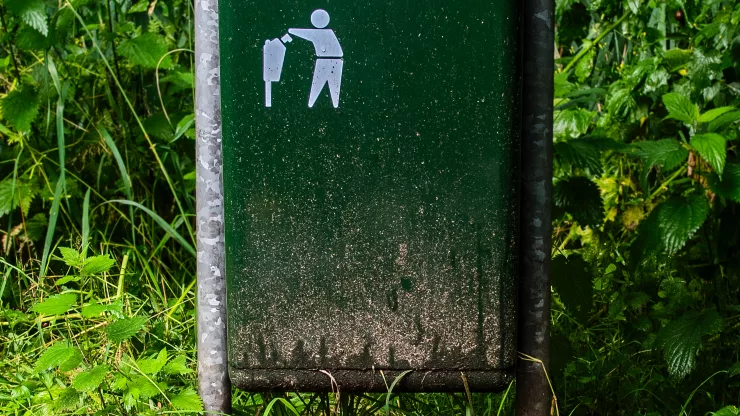Turtles are fascinating creatures that have been around for millions of years.
They have adapted to various environments, including urban areas, where they play a vital role in the local ecosystem.
In this article, we will take a closer look at city turtles and their delicious diet.
Jump to Section
Introduction
Turtles are some of the most interesting creatures on the planet. They come in various shapes and sizes and can live in almost any habitat, including cities.
City turtles are an essential part of the urban ecosystem, and their diet plays a crucial role in maintaining the health of this ecosystem.
Why City Turtles are Worth Talking About
City turtles are often overlooked in urban environments, but they are worth talking about.
They play an important role in maintaining the health of the ecosystem, and their diet is an essential part of that.
By understanding what city turtles eat, we can learn more about these fascinating creatures and how we can help protect them.
The Importance of Turtles in Urban Ecosystems
Turtles are an essential part of the urban ecosystem.
They help to keep the environment clean by eating decaying plant and animal matter, which helps to prevent the spread of disease.
They also help to maintain the balance of the ecosystem by eating certain plants and animals, which can prevent overpopulation.
What Do City Turtles Eat?
City turtles have a varied diet that includes both plants and animals. They are omnivorous, which means that they eat both meat and plants.
Some turtles are primarily herbivores, while others are primarily carnivores.
The Surprising Variety of City Turtle Diets
City turtles have a surprisingly varied diet that includes a wide range of plants and animals. Some of the most common foods that city turtles eat include:
- Fruits and vegetables
- Insects
- Snails
- Fish
- Amphibians
- Small mammals
Omnivorous and Herbivorous Turtles in Urban Areas
Some city turtles are primarily herbivores, while others are primarily omnivores.
Herbivorous turtles eat mainly plants, such as fruits and vegetables, while omnivorous turtles eat both plants and animals.
How City Turtles Adapt Their Diets to Urban Environments
City turtles have adapted their diets to the urban environment, which can be very different from their natural habitat.
They may eat different plants and animals than they would in the wild, and they may also eat more human food if it is available.
The Benefits of City Turtles’ Diets
The diet of city turtles has many benefits, both for the turtles themselves and for the urban ecosystem as a whole.
The Nutritional Value of Turtle Foods
The foods that city turtles eat are rich in nutrients, which help to keep them healthy.
Fruits and vegetables provide vitamins and minerals, while meat provides protein and other essential nutrients.
The Role of Turtles in Maintaining Urban Biodiversity
City turtles play an important role in maintaining the biodiversity of the urban ecosystem.
By eating a variety of plants and animals, they help to keep the ecosystem in balance and prevent overpopulation.
Turtle Diets as a Reflection of Urban Health
The diet of city turtles can also be a reflection of the health of the urban environment.
If turtles are not able to find enough food, or if the food they are eating is contaminated, it can be a sign of environmental problems that need to be addressed.
Challenges and Threats to City Turtle Diets
City turtles face many challenges and threats to their diets, including human impacts and pollution.
Human Impacts on Turtle Diets
Human impacts on turtle diets can be both intentional and unintentional.
The Dangers of Feeding Turtles Human Food
Feeding turtles human food can be dangerous for their health. Many human foods are not suitable for turtles and can make them sick.
It can also lead to overpopulation, which can have negative impacts on the ecosystem.
The Effects of Pollution on Turtle Food Sources
Pollution can also have a significant impact on the food sources of city turtles.
Contaminated water and soil can lead to the accumulation of toxins in the plants and animals that turtles eat, which can be harmful to their health.
What Can We Do to Protect City Turtles’ Diets?
There are several things that we can do to help protect the diets of city turtles.
Simple Steps to Support Turtle Diets in Cities
Creating Safe Spaces for Turtles to Feed
Creating safe spaces for turtles to feed is one of the most important things we can do to protect their diets.
This can include providing habitats that are free from pollution and human interference, as well as protecting their food sources.
Educating the Public on Turtle Diets and Conservation Efforts
Educating the public about turtle diets and conservation efforts is also essential.
By raising awareness about the importance of turtles in the ecosystem and the threats they face, we can help to ensure their survival.
Conclusion
City turtles are fascinating creatures that play an essential role in maintaining the health of the urban ecosystem.
Their diet is a vital part of this, and by understanding what they eat and how we can help protect their food sources, we can help to ensure their survival.
How We Can All Help Support Urban Turtle Populations
By taking simple steps to support urban turtle populations, such as creating safe spaces for them to feed and educating the public about their importance, we can help to ensure that these fascinating creatures continue to thrive in our cities.
FAQ
What are some common foods that city turtles eat?
City turtles eat a wide variety of foods, including fruits and vegetables, insects, snails, fish, amphibians, and small mammals.
Why are turtles important in urban ecosystems?
Turtles play an essential role in maintaining the health of the urban ecosystem by eating decaying plant and animal matter, which helps to prevent the spread of disease.
They also help to maintain the balance of the ecosystem by eating certain plants and animals, which can prevent overpopulation.
What are some threats to city turtle diets?
City turtles face several threats to their diets, including human impacts such as overfeeding and pollution.
Pollution can lead to the accumulation of toxins in the plants and animals that turtles eat, which can be harmful to their health.
I’m a nature enthusiast and creator of Metro Wilds and have spent years exploring the great outdoors.
With a passion for environmental conservation and sustainability, I have dedicated my career to writing about the beauty and wonders of nature, as well as the threats facing our planet.
Contact me at [email protected] for assistance.

